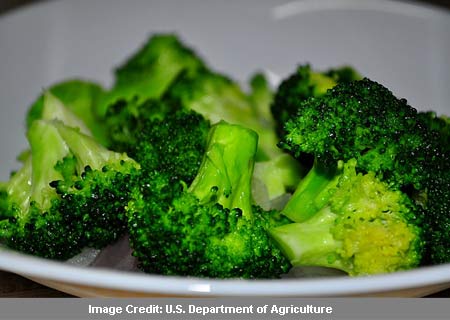Epigenetics is an area of medicine dealing with the effect of dietary intake, toxins or other factors on the expression of genes in the body. Scientists at the Oregon State University have unleashed how the sulforaphane compound found in broccoli and cruciferous vegetables could inhibit cancer by using 2 different epigenetic pathways.
Many studies have put forward the importance of sulforaphane, which functions by means of histone deacetylases, or HDACs. The latter is a class of enzymes that may have an effect on the normal functioning of genes and repress tumors too. Basically, DNA methylation and HDAC inhibition appeared to be the 2 factors responsible for optimum cell function. This mechanism supposedly led to prevention of cancer.
In this research, the methylation gene cyclinD2 was observed. As per the results, both DNA methylation and HDAC inhibition was apparently influenced by sulforaphane. When a proper balance was maintained in the methylation process, cancer seemed to be restrained.
“With these processes, the key is balance. DNA methylation is a natural process, and when properly controlled is helpful. But when the balance gets mixed up it can cause havoc, and that’s where some of these critical nutrients are involved. They help restore the balance,†explained Emily Ho, an associate professor in the Linus Pauling Institute and the OSU College of Public Health and Human Sciences.
This analysis was carried out in prostate cancer cells, but could be applicable for other cancers like breast and colon too. Sulforaphane is a well known constituent of broccoli but is also found in many other vegetables like kale and cauliflower. Lab tests as well as clinical trials affirmed the role of broccoli in averting cancer.
This report is published in the journal Clinical Epigenetics.

